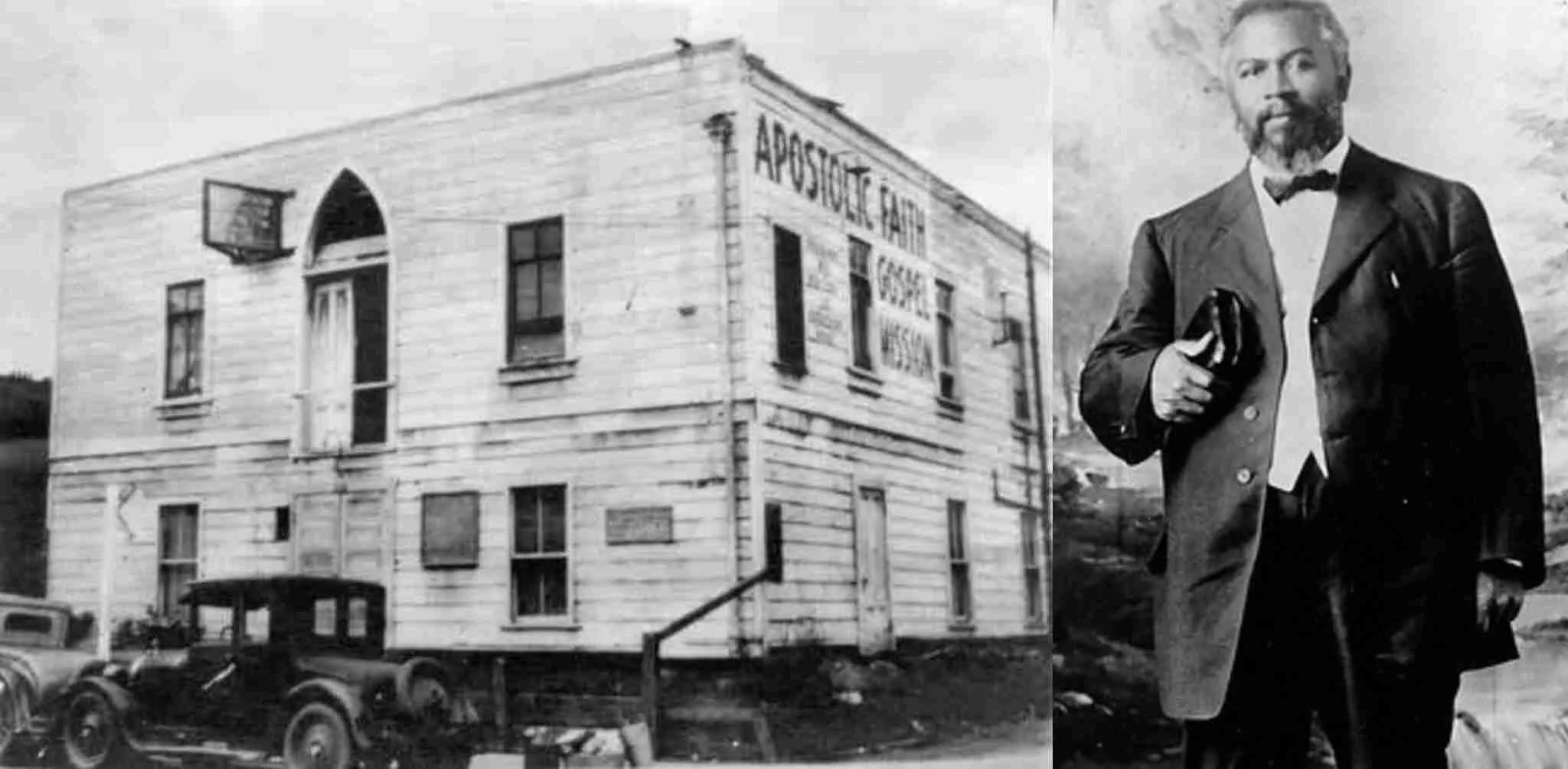Are You Desperate?
There’s been a talk lately of revival, and understandably so. But like a wise journalist once said, “Pursue curiosity over commentary.” So, I’m going to refrain from commenting on the recent public calls and instead, do a “curiosity dive” into what spiritual features have historically accompanied revival.

Above: William Seymour led the Azusa Street Revival of the early 20th Century
Dr. Craig Keener, who was front and center as a faculty member and participant in the Asbury Revival, finds that two things have attended all notable revivals since the First Great Awakening: committed prayer and a deep longing for the holiness of God. Keener cites that longing in Scripture, that desperation, by pointing to the friends of the paralyzed man digging a hole in somebody’s roof to get to Jesus (Luke 15 and Mark 2). You notice this desperation in the woman with the flow of blood (Mark 5, Matt. 9, Luke 8), and in the Syro-Phoenician Woman, who is willing to receive “scraps” (Mark 7 and Matt. 15).
He goes on to note that it is God who sends revival, solely and without exception. Sometimes, He pours out His Spirit in abundance over a long period (half a century during the 2nd Great Awakening and three years during Azusa Street). Other occasions are more brief, like the 2023 Asbury Revival, just 16 weeks.
Keener further notes that revivals are not celebrity-driven. Sometimes a key leader, or leaders, will arise from within the revival, but they are not necessary. During the Asbury revival, contemporary Christian celebrities offered to come and help, but the nondescript student and faculty “leaders” declined, replying that the Spirit’s leadership was more than sufficient. They knew the source of the revival’s power was not flesh and blood, no matter how famous or influential.
Moreover, Asbury was rooted in years of desperate prayer, calling on God to pour out His Spirit. It also occurred immediately after a small prayer meeting, during which the participants repented of the sins of slavery, in a manner reminiscent of Daniel 9. An African American worship leader recalls being deeply touched by that shared experience and subsequently led an extended time of worship following the “end” of Asbury’s student chapel, ushering in the next 16 weeks.
A common misconception is that signs and wonders dominate revival. It may be true in some cases, but the more significant feature is transformed lives. William Seymour, whose followers famously exhorted, “Seek the Giver, not the gifts,” was decried as unfit by some because of his ethnicity and lack of education. However, the Azusa Street Revival was notable, especially in its early stages, for the way it broke down racial barriers. It did so in ways unimaginable at the time, transforming whole communities.
Participants were desperate for God to change them, first and foremost. They were far less concerned with the externals of culture and country. Keener notes a similar rhythm in Acts where the Spirit’s outpourings follow hard on Peter’s calls for repentance. In Acts 2, for example, they continued to turn to God, praying INTO the outpouring.
I also found that revival shouldn’t be conflated with discipleship, at least not directly. Making disciples of all the people in all nations is a task assigned to us by our Lord, but revival (at least as far as I can tell) is a sovereign response of God to the desperate, repentant cries of His people for an outpouring of His Spirit. It’s not about saving or resurrecting something, but about moving God’s people, who are already alive, into a spiritual state where they are even MORE alive.
I am deeply encouraged by what I discovered, because I see a genuine hunger for God emerging at B4. However, my study also left me with a question: what quenches revival? I see two things. The first is spiritual complacency, and the second is celebrity — a hunger to be near popularity, prestige, and personal power over and against a desperate longing for God’s Presence.
So, let’s pray together for a revivifying outpouring of God’s Spirit, allowing that its timing and scope are solely in God’s hands:
- That we would become increasingly desperate for God’s Presence, as evidenced by committed petition and intercession
- That we would be known for quick and earnest repentance
- That we would not surrender to complacency or embrace celebrity, but would remain hungry and humble.
Let’s pray first for ourselves and then for our church!

